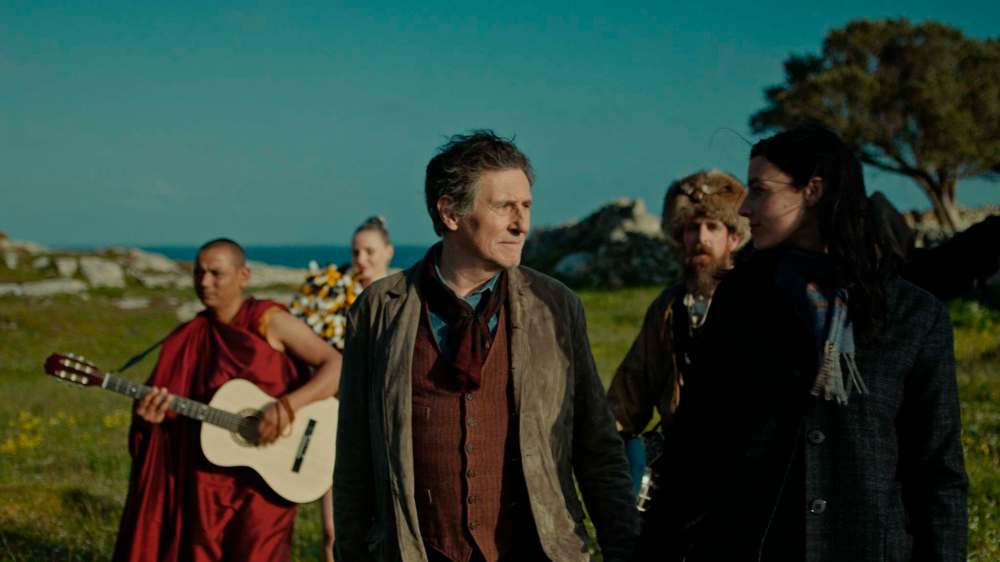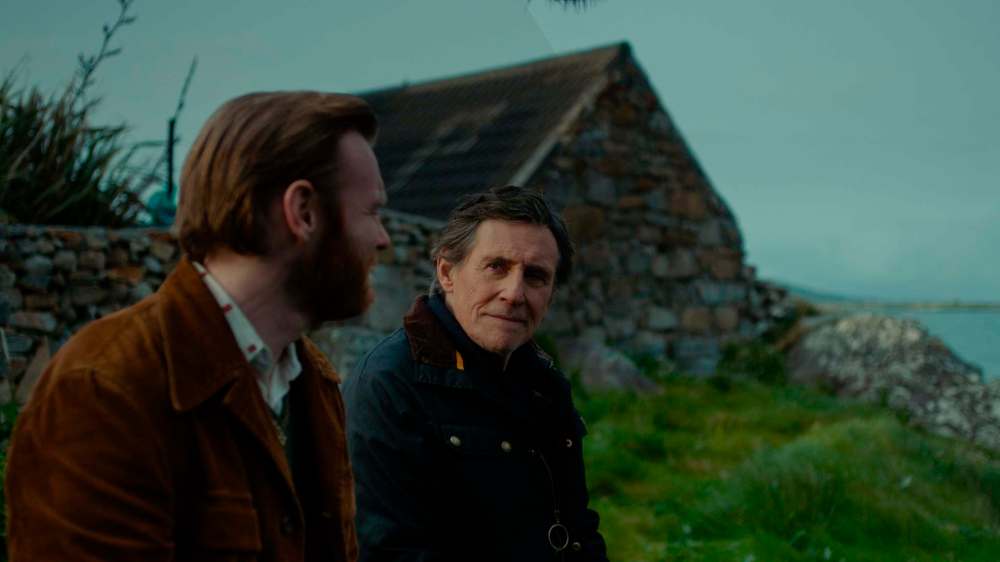Laughing in the face of death
Humour, absurdity bring a light touch to bleak, Cohen-inspired Irish-Canadian drama
Advertisement
Read this article for free:
or
Already have an account? Log in here »
To continue reading, please subscribe:
Monthly Digital Subscription
$0 for the first 4 weeks*
- Enjoy unlimited reading on winnipegfreepress.com
- Read the E-Edition, our digital replica newspaper
- Access News Break, our award-winning app
- Play interactive puzzles
*No charge for 4 weeks then price increases to the regular rate of $19.00 plus GST every four weeks. Offer available to new and qualified returning subscribers only. Cancel any time.
Monthly Digital Subscription
$4.75/week*
- Enjoy unlimited reading on winnipegfreepress.com
- Read the E-Edition, our digital replica newspaper
- Access News Break, our award-winning app
- Play interactive puzzles
*Billed as $19 plus GST every four weeks. Cancel any time.
To continue reading, please subscribe:
Add Free Press access to your Brandon Sun subscription for only an additional
$1 for the first 4 weeks*
*Your next subscription payment will increase by $1.00 and you will be charged $16.99 plus GST for four weeks. After four weeks, your payment will increase to $23.99 plus GST every four weeks.
Read unlimited articles for free today:
or
Already have an account? Log in here »
Hey there, time traveller!
This article was published 12/03/2021 (1727 days ago), so information in it may no longer be current.
The Canadian drama is often beset by a certain blindness on the part of filmmakers, who believe somehow that there is a ravenous public appetite for the relentlessly downbeat.
Matthew Bissonnette’s drama Death of a Ladies’ Man stands as an example of how it is possible to present bleak material in an imaginative and even lively way.
Bissonnette, who directed the Manitoba-lensed Who Loves the Sun and the fraternal comedy drama The Passenger Side, has a gift for leavening a dark premise with bubbles of humour and even absurdity.

We shouldn’t laugh (but we often do) at the predicament of Samuel O’Shea (Gabriel Byrne), an English professor at a Montreal college.
We find him in the opening scene separating from his second wife after catching her in flagrante with a much younger lover.
Soon after, Samuel starts seeing things. The kids in his classroom spontaneously start singing from the songbook of Leonard Cohen. He gets drunk one night with Frankenstein’s monster. The waitress seating him has the body of an Amazon and the head of a tiger.
Most unnerving of all, he starts receiving regular visits from the ghost of his father (Brian Gleeson), who died when Samuel was just a lad.
Sam consults a doctor and learns the culprit is an inoperable brain tumour. Facing the prospect of death, he is obliged to make peace with his fractured family, even as his reality starts to fracture further.

His first wife Josée (Suzanne Clément) has moved on, planning to marry again. But his daughter Josie (Karelle Tremblay) is clearly in trouble, having inherited her father’s penchant for addiction.
The title Death of a Ladies’ Man is taken from the song by Cohen, whose work runs through the film. The Montreal-born Bissonnette revealed his Cohen obsession in his 2002 first feature, Looking for Leonard, and frequently name-checks him in other work.
Cohen’s songbook is generally too rich for a conventional jukebox musical, but this film is the next best thing, using Cohen’s songs — Did I Ever Love You, Bird on the Wire and of course, Hallelujah — to create a kind of borrowed melancholy, reflecting Samuel’s yearning and regret.
When Samuel heads to his native Ireland to finally write the novel he has long put off, the film makes a violent urban-to-rustic tonal shift that feels gratuitously tied to the fact this is an Irish-Canadian co-production.
Samuel manages to entice a market cashier (Mad Men’s Jessica Paré) into a final fling, one that becomes dangerous when a jealous former suitor shows up on the scene.

If the Irish Byrne seems a curious stand-in for Jewish Montrealer Cohen, the actor’s scruffy/worldly charm does sync up to the material (as evidenced by the title of Byrne’s recent autobiography, Walking with Ghosts).
Perhaps most impressively of all, the film manages to make a few jokes about the insular realm of Canadian literature: What are we to make of a murderously jealous would-be scribe named “Layton”?
randall.king@freepress.mb.ca
Twitter: @FreepKing

Our newsroom depends on a growing audience of readers to power our journalism. If you are not a paid reader, please consider becoming a subscriber.
Our newsroom depends on its audience of readers to power our journalism. Thank you for your support.


